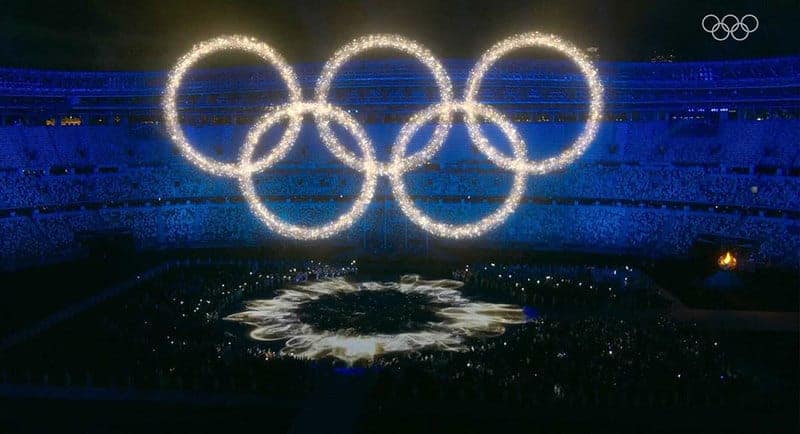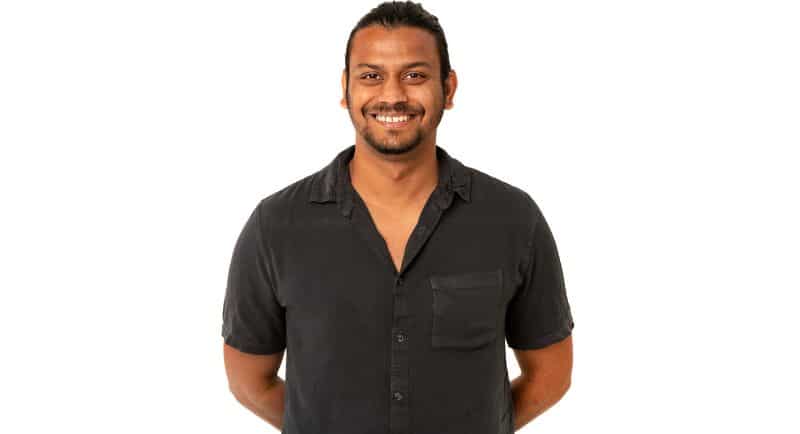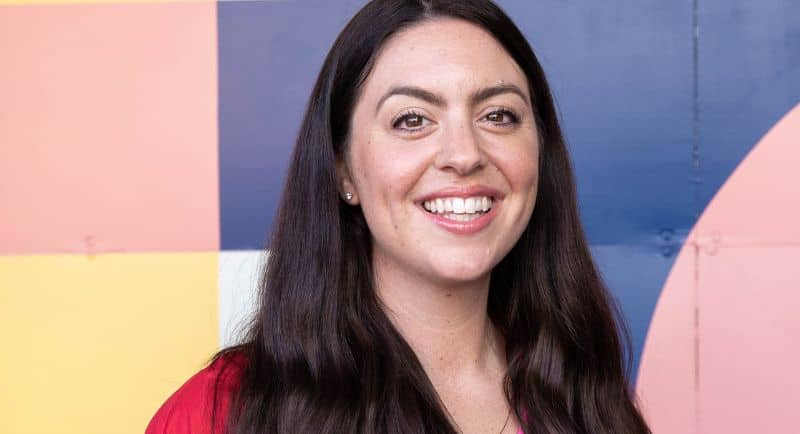Nine was awarded the exclusive rights for the Olympic Games from 2024 to 2032 by the International Olympic Committee earlier this month.
After decades on the Seven Network, the new partnership will see Nine deliver every moment from the following five summer and winter games – Paris 2024, Milan 2026, Los Angeles 2028, a yet-to-be-announced 2030 winter games and Brisbane 2032.
Nine will harness the power of its diverse streaming, television, audio, and digital platforms across 9Now, Stan, the 9Network, talk radio stations, and print and online publishing platforms to bring the Games to audiences.
Mediaweek asked media buyers to share their thoughts on Nine’s landmark win and what that means for the next decade in terms of opportunities for brands and agencies.

Initial thoughts on Nine’s Olympic win
Kevin Fernandes, national head of partnerships and AdTech at Havas Media Australia, praised Seven’s recent multi-platform experience of the 2020/2021 Olympics, which provided high rating numbers that supported the Australian time zone.
“Nine is a fierce competitor and has created a multi-platform company with the intention of becoming the new home of sports for Australia. There is interest from our clients around how Nine will develop the capability of running coverage for a logistically intense property like the Olympics,” he said.
“The ability to effectively present a broad array of sports across multiple channels will be Nine’s greatest challenge. Time zone will also present issues given that the Olympics are being held in Paris in 2024. The complete opposite time zone to Australia,” he added.

Kevin Fernandes
Elly Catchlove, business director at Half Dome, highlighted the significance of the end of Seven’s long affiliation with the Olympics and noted interest in seeing Nine’s approach to the Games as a property and a platform.
“It is clearly a massive investment, and if reports are to be believed, they have paid much more than Seven previously did, so the pressure will be on.”
Catchlove pointed to Nine’s impressive past performance with the Australian Open as a potential sampler for their “grand place” for the Olympics.
Jimmy Dau, national partnerships director at Bohemia, said the deal surprised him.
“It’s only been just over a year since Nine renewed the NRL contract and extended its Australian Open tennis relationship by another five years at the end of 2022 – both adding up to over a reported $1 billion, which would be considered a huge investment by any means,” he said.
Dau said that sports sales teams would likely be extremely busy over the next few years to recoup that investment.
The significance of the changing of the guard
Nine’s win for the exclusive broadcast rights of the Games marks the end of an era for Seven, who had long aired the Olympics for decades.
Fernandes said that Seven’s excellent showcase of the Games covered a breadth of sports and talent that the Olympics offered over the years, delivered in high quality on multiple platforms.
Looking at Nine, he noted that the network has always been at the forefront of driving digital change over the past five years as its 9Now app steadily rises in audience numbers.
“The fascinating aspect of having the Olympics is an opportunity for Nine, and brands alike, to run personalised and hyper-targeted advertising across states and cities due to the demographic of locals and different sports taking place.
“This, coupled with having access to the next three Olympics along with the winter games, would only help Nine get a further stronghold across what Australians like to consume and set the blueprint of how brands can truly embrace storytelling,” Fernandes added.

Elly Catchlove
For Catchlove, she pointed out that the Olympics win was significant for Nine as it would be a major driver in audience uplift.
“Couple this with Nine’s overall media footprint across TV, BVOD, digital, publishing and radio, and the opportunity to seamlessly tie together all of these channels across one network is huge,” she said.
Catchlove noted that this was seen earlier at the Australian Open broadcast across Nine, 9Now, covered in publishing in The Age, Sydney Morning Herald and streamed live and ad-free on Stan, with Centre Court broadcast in 4K.
Looking at Seven, Catchlove added: “Relinquishing such a significant investment provides Seven with a great opportunity, and it will be interesting to see how they take advantage of it.”
Dau also noted the Games win as a significant move for Nine, who’s previously broadcast one Olympics – the London summer Games in 2012 – in contrast to Seven’s long broadcast history with the Games going as far back as the 1956 Melbourne Games.
“I believe that there may be more interest from Australian advertisers now that they have a variety of advertising across streaming, television, audio, and digital platforms,” he said.
“Prior broadcast rights were limited to screens only, which would have priced a lot of advertisers out,” he added.
See also: Nine officially awarded Olympic Games broadcast rights up to 2032
Olympic-sized opportunities for brands
The Olympics has always presented creative, innovative, and interesting opportunities for brands. With Nine’s win, brands should consider taking advantage of potential upcoming offerings.
Fernandes noted that the Olympics is an event that has united Australians over the years. He said: “We know that the nation will rally around its athletes, offering a large and diverse cultural opportunity.”
Fernandes pointed out that brands are seeking higher engagement and attention from audiences, and investing in delivering emotional quality content has the potential to reap significant rewards for brands from consideration through to purchase.
“The Olympics can serve as a canvas for brands to reach larger audiences in short and valuable points of time. Importantly a key aspect for brand alignment is brand safety, and there is great confidence in the Olympics being a safe and family-friendly environment,” he added.
Catchlove said that for brands that are part of the IOC, the Olympics provides a unique platform to integrate within, driving a truly enormous footprint with global reach. “However, outside those brands, integrating within has always been hard. As a result, many brands opt to avoid it, with the fear of being drowned out,” she said.
“Brands buy into the Olympics to be associated with the positivity of the entire event, and there is potential with Nine to offer up some out-of-the-box integration,” Catchlove pointed out.

Jimmy Dau
Similarly to Fernandes, Dau concurred that sporting events bring millions of people together and influence modern culture. “Who doesn’t remember Cathy Freeman’s historic 400m final during the Sydney 2000 Games?” he pointed out.
Dau said: “I can see a lot of brands wanting to align with an event that attracts athletes at the peak of their game every four years.”
“Even if there is no direct alignment with the Games, creatives are most likely already thinking about weaving in sporting themes into their campaigns at that time to latch onto those cultural moments,” he added.
Getting a head start on the Brisbane 2032 Games
Looking into the crystal ball, all three agreed that the Brisbane Games in 2032 would be a monumental occasion in Australia and from a marketing perspective.
Fernandes said: “There are very few countries in the world that celebrate sports, cultures, and icons as Australians do, and with the Olympics coming back to Australia, we have another opportunity to showcase to the world why Australia and Brisbane/QLD should be on the bucket list.”
Fernandes noted that now is the time for brands to develop long-term strategies around the Olympic platform and establish their marketing priorities.
“Right now, we have incredible sporting teenage talent that will be at their best in nine years. There is the unique opportunity to identify and capitalise on investing at the grassroots level to support emerging talent,” he explained.

Paris 2024 Olympic Games
“To ensure they find a place within the 2032 Olympics across an array of sports. Nothing will beat celebrating a home-grown talent with a medal and being a part of the journey,” Fernandes added.
Catchlove said the Games would be of enormous significance for local brands and Australia.
“In all honesty, who knows what we can expect from a marketing perspective in 2032 – nine years is a long time in this industry,” she pointed out.
Meanwhile, Dau said from now until the 2032 Games, the AOC and local sporting and tourism bodies should work on their programs to ensure they can attract greater sporting participation and visitation to the country.
“No doubt, Nine will also start leveraging this news to grow their sporting audience, and Queensland Tourism already has their plans laid out on attracting tourism to the state leading up to 2032,” Dau added.
–
Top image: Kevin Fernandes, Elly Catchlove and Jimmy Dau
